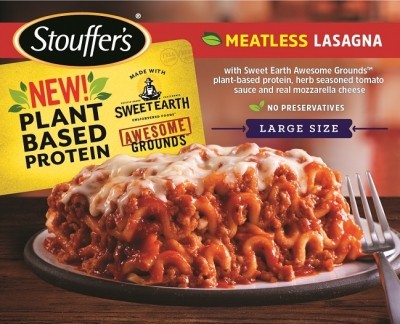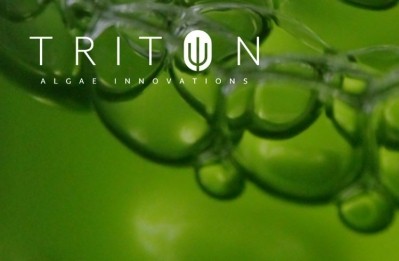Nestlé tie up with Corbion gives fresh impetus to algae in the alternative protein market

“In order to move this [algae protein] from being a niche product, we needed a couple of breakthroughs,” Marc den Hartog, executive vice president of innovation platforms at Corbion, told FoodNavigator-USA after announcing the deal last week.
“One of them was making it a more cost effective ingredient for larger scale food applications, and the other was getting traction with large food manufacturers.”
The partnership with Nestlé - the world’s largest food company - indicates that both are possible, he said, noting that while there are several established players growing algae for omega-3s in food and feed, there are no major players aside from Corbion developing algae protein for food applications.
Most players in this emerging space are startups, he said. [Read about Triton Algae Innovations, which targeting the food and beverage industry is a Non GMO 'wild type' whole algae ingredient rich in protein; Spira, a startup exploring the potential of protein from spirulina' and Noblegen, a startup producing proteins from Euglena gracilis – “a protist that could also be classified as an algae"].
“With volume growth we’ll be able to take it [the protein-rich whole algae ingredient] from Peoria [a small plant in Illinois where Corbion’s AlgaVia products are currently manufactured] to [a far larger plant] in Brazil and that will drive costs down significantly and make it an ingredient that can be used in broader applications," said den Hartog.
‘The partnership is really geared towards some specific food and beverage applications’
Nestlé is particularly interested in using algae protein in plant-based creamers, coffee mixes and non-dairy ice cream, as well as plant-based meat alternatives and prepared dishes, he explained.
“The partnership is really geared towards some specific food and beverage applications,” he added. “So the protein profile that works best in a beverage or non-dairy ice cream might be very different from what works well in a protein bar, for example.”
While Corbion can alter the amino acid profile of its algae protein by changing the fermentation conditions/parameters, it also has “high-throughput screening methods to allow us to select strains most suitable to create specific taste or nutrition profiles,” he said.
AlgaVia protein-rich whole algae contains around 63% protein, along with fiber, lipids and micronutrients such as lutein and zeaxanthin.
“Nestlé is very interested in the protein but it’s also interested in the micronutrients in the algae as well,” said den Hartog.
Unlike pea protein, AlgaVia protein has a neutral taste, and does not interact with other ingredients in a formulation as the cell wall of the algae remains intact, meaning that it remains stable in a variety of temperatures and pH conditions, and it does not add viscosity or grittiness.
It is vegan, non-allergenic, non-GMO, and arguably ‘greener’ than rival sources of protein in that it can effectively be made to order – in a matter of days – is highly scalable, and does not require the cultivation of large tracts of agricultural land.
Former owner Terravia secured a 'no objections' letter from the FDA regarding its GRAS determination for the protein-rich ingredient.
Algae ‘butter’ and culinary oils
Corbion’s algae butter – which can replace hard fats such as palm oil, shea butter and cocoa butter in a variety of applications spanning confectionery, bakery and spreads – could also serve as a replacement for coconut oil (which is high in saturated fat) in plant-based meat products, he said.
“We’ve tested and validated this in confectionery and spreads applications and we’re doing some early stage development with some of the plant-based meat companies as well, as we’re looking to take this to a wider market.”
Culinary algae oil Thrive – which has a clean taste, high smoke point and attractive fatty acid profile – continues to perform well, although it occupies an unusual place in Corbion's portfolio as it is a branded retail product (rather than an ingredient), said den Hartog.
“We’re in Walmart now and we’ve seen further adoption in all of the large retailers in the US, where we’re very happy with its success. We’re still making up our mind about taking it to Europe or other regions – which could be costly from a regulatory perspective - as we’re not a consumer goods company.”
"We are actively exploring the use of microalgae as an alternative protein and micronutrient source for exciting plant-based products. Through the partnership with Corbion, we will be able to use great-tasting, nutritious microalgae-based ingredients to innovate across our different product categories."
Stefan Palzer, chief technology officer, Nestlé



















